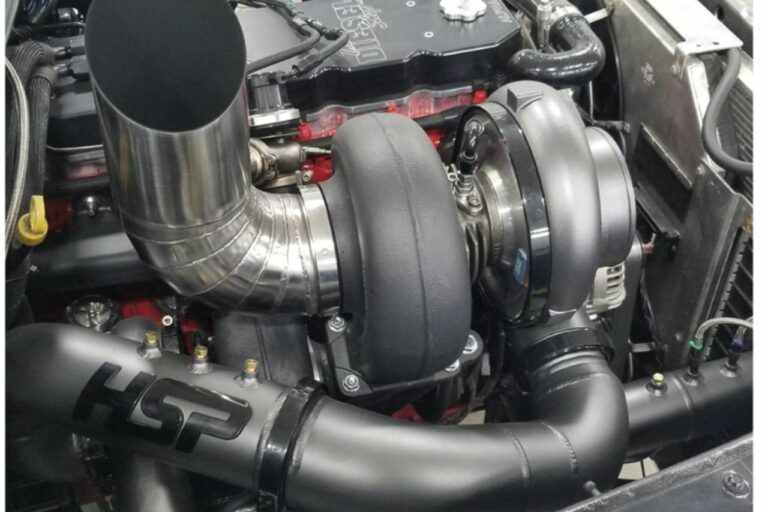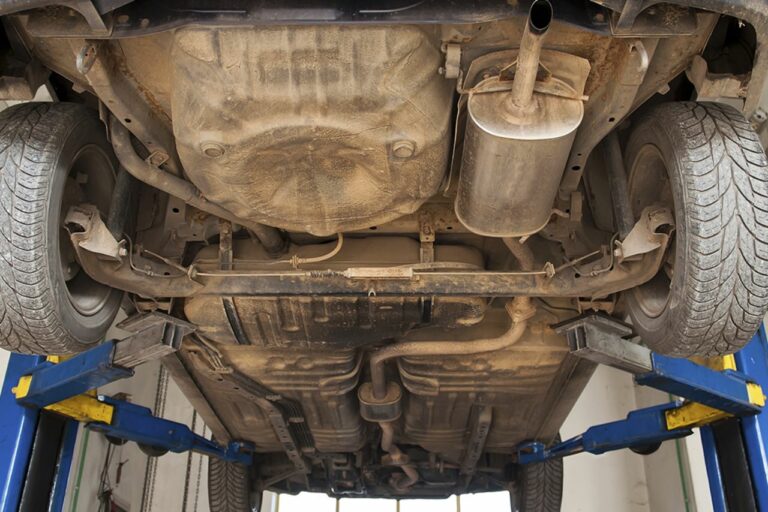Oil Change And Tire Rotation Cost: (A Comprehensive Guide!)

Are you wondering how much it will cost you to get an oil change and tire rotation?
Regular maintenance is essential for the longevity and performance of your vehicle.
Neglecting this maintenance can result in costly repairs and reduce the lifespan of your car.
Oil Change And Tire Rotation Cost:
The cost of an oil change and tire rotation varies depending on the location, type of vehicle, and type of oil used. On average, the cost ranges from $50 to $100 for a standard oil change and tire rotation. However, prices may be higher for luxury or high-performance vehicles that require synthetic oil or specialized maintenance.
In this article, we will discuss the importance of regular maintenance, the factors affecting the cost of oil changes and tire rotations, the average cost of these services, and how bundling services can save you money.
Oil changes and tire rotations are two of the most common maintenance services that your vehicle requires.
Oil changes ensure that your engine runs smoothly and efficiently, while tire rotations help extend the life of your tires and improve their performance.
The cost of these services can vary depending on several factors, including the type of car you have, the type of oil and filters used, the condition of your tires, and the location of the service provider.
It is important to understand these factors to make informed decisions about regular maintenance and budgeting for these services.
Understanding the Importance of Regular Maintenance:
You know how important it is to keep up with regular maintenance on your car, right? Well, that includes getting your oil changed and tires rotated on a regular basis.
The importance of preventative maintenance cannot be overstated. ‘Regular oil changes help to keep your engine running smoothly and efficiently, while tire rotations ensure even wear and extend the life of your tires.
By investing in regular maintenance, you can save yourself a lot of money in the long run. ‘Neglecting simple tasks such as oil changes and tire rotations can cause serious damage to your vehicle, leading to costly repairs.
Additionally, regular maintenance can help to identify and address potential issues before they become major problems. So, don’t skimp on preventative maintenance – it’s an investment in the longevity and reliability of your vehicle.
Factors Affecting the Cost of Oil Changes:
When it comes to the cost of oil changes, there are several factors that can affect the price you’ll pay.
The type of oil used, the size of your engine, and the location of the service center are just a few of the key factors to keep in mind.
Additionally, if you opt for additional services such as a filter change or fluid top-off, this can also impact the overall cost of your oil change.
Type of Oil Used:
Using synthetic oil instead of conventional oil can increase the longevity of your engine, but it also adds to the cost of the oil change.
Synthetic oil is made from chemicals and is engineered to be more stable and durable than conventional oil.
This means that synthetic oil can handle higher temperatures and last longer than conventional oil.
Moreover, synthetic oil has a lower viscosity, which means it flows more efficiently through the engine, reducing friction and wear on engine components.
However, synthetic oil is more expensive than conventional oil, which can add to the cost of an oil change.
When choosing between synthetic and conventional oil, it’s important to consider the specific needs of your vehicle.
If your car requires synthetic oil, using conventional oil can cause engine damage and reduce the longevity of your engine.
On the other hand, if your car can use either type of oil, you may want to consider the additional benefits of synthetic oil, such as improved engine performance, better fuel economy, and reduced emissions.
Ultimately, the decision to use synthetic or conventional oil will depend on your budget, your vehicle’s needs, and your personal preferences.
Engine Size:
If you’ve got a big engine, it’s important to choose the right oil to keep it running smoothly.
Engine power and size are directly related to the amount of oil the engine needs.
A larger engine requires more oil to properly lubricate all of its moving parts.
The oil must also be able to withstand the heat generated by the increased power output.
To ensure your engine is properly lubricated, it’s important to choose the right oil and change it at the appropriate maintenance frequency.
Here are three things to consider when choosing oil for a big engine:
- Viscosity: The viscosity of the oil should match the manufacturer’s recommendations and the engine’s operating temperature range.
- Additives: Additives can help protect the engine from wear and tear and improve performance.
- Synthetic vs. Conventional: Synthetic oil is more expensive, but it lasts longer and provides better protection for high-performance engines.
By selecting the right oil for your engine and changing it at the appropriate maintenance frequency, you can help ensure your engine runs smoothly and efficiently. Keep in mind that neglecting oil changes or using the wrong type of oil can lead to costly repairs down the line.
Location of Service Center:
You’ll be relieved to know that finding a service center near you is easy and convenient.
With the prevalence of service centers in most areas, it’s highly likely that you won’t have to travel far to get your oil changed or your tires rotated.
However, it’s important to remember that not all service centers are created equal. The availability and reputation of a service center can greatly impact the cost of your oil change and tire rotation.
A service center that is highly regarded in the community and has a reputation for quality work may charge more for their services.
On the other hand, a service center that is less known may offer lower prices to attract customers.
It’s important to weigh the cost of the service against the reputation of the service center to ensure that you are getting the best value for your money.
Additional Services:
Don’t forget to explore the variety of additional services offered at the service center to get the most out of your visit.
In addition to oil change and tire rotation, the service center may offer services such as tire balancing, engine diagnostics, and air filter replacement.
These additional services can improve the performance of your vehicle and keep it running smoothly.
Tire balancing is essential for a smooth and comfortable ride. It ensures that your tires are properly aligned and reduces wear and tear on your tires.
Engine diagnostics can detect any problems with your engine before they become bigger and more expensive to fix.
Air filter replacement is also important to maintain the air quality in your vehicle and prevent engine damage.
By taking advantage of these additional services, you can extend the life of your vehicle and save money in the long run.
Average Cost of Oil Changes:
Get ready to shell out some cash for regular oil changes, as they typically cost around $50-$75 at most auto shops.
The cost of oil changes can vary depending on where you live, the type of oil your car requires, and the make and model of your vehicle.
However, it is important to keep up with regular oil changes to ensure proper engine function and avoid costly repairs down the road.
Here is a breakdown of the average cost of oil changes at different types of auto shops:
| Type of Auto Shop | Average Cost of Oil Change |
|---|---|
| Dealership | $75-$120 |
| National Chain | $40-$80 |
| Independent Shop | $35-$60 |
| DIY | $15-$30 |
As you can see, the cost of oil changes can vary significantly depending on where you go. A dealership will typically charge the most, while a DIY oil change can save you a significant amount of money.
It is up to you to decide whether the convenience of having a professional perform the oil change is worth the extra cost.
However, it is important to note that neglecting regular oil changes can lead to costly engine damage in the long run.
Benefits of Regular Tire Rotations:
Maintaining the health of your vehicle is crucial, and one way to do this is through regular tire rotations.
They offer a range of advantages that you don’t want to miss out on. By rotating your tires every 6,000 to 8,000 miles, or as recommended by your vehicle’s manufacturer, you ensure even wear and tear.
This extends their lifespan and improves their overall performance.
To ensure that your tires wear evenly and prevent premature replacement, it’s important to use the right pattern based on your vehicle’s drivetrain and tire type.
This will also prevent damage to your vehicle.
Regular tire rotations don’t just extend the lifespan of your tires, but also improve your vehicle’s fuel efficiency, handling, and safety.
Keeping your tires in good condition reduces the risk of blowouts, hydroplaning, and other accidents. Plus, you’ll save money on fuel costs and potential repairs in the long run.
So, make sure to schedule a tire rotation appointment with your mechanic as soon as possible!
Factors Affecting the Cost of Tire Rotations:
When it comes to the cost of tire rotations, there are a few factors that can influence the final price.
The type of vehicle you have will play a significant role in determining the cost, as some vehicles require more time and effort to rotate the tires.
Additionally, the type of tires you have and the location of the service center can also impact the overall cost.
Be sure to keep these factors in mind when budgeting for your tire rotation service.
Type of Vehicle:
Depending on the make and model, the cost of an oil change and tire rotation can vary for your vehicle.
The type of vehicle you have plays a significant role in determining the cost of a tire rotation.
Here are a few ways your vehicle type can impact the cost:
- Vehicle Size: A larger vehicle like an SUV or a truck may require larger and heavier tires that can be more expensive to rotate. The size of your vehicle’s tires can also impact the time it takes to do the rotation, and more time can mean a higher cost.
- Mileage Requirements: Some vehicles may require more frequent tire rotations based on their mileage requirements. For example, high-performance sports cars may require more frequent rotations to ensure optimal performance and safety. This can add to the overall cost of oil changes and tire rotations over time.
- Unique Requirements: Certain types of vehicles may require specialized tools or techniques to perform a tire rotation properly. This may include luxury cars or vehicles with unique suspension systems. These specialized requirements can add to the cost of the service.
Considering these factors can help you understand why the cost of an oil change and tire rotation can vary so much. It’s important to keep in mind that regular maintenance like oil changes and tire rotations can help prolong the life of your vehicle and save you money in the long run.
Type of Tires:
Upgrading your tires can greatly enhance your driving experience, making you feel safer and more confident on the road. When it comes to choosing the right type of tire, you have a few options.
Winter tires are designed for use in snowy and icy conditions, with a special tread pattern that provides better traction.
Summer tires, on the other hand, are optimized for use in warm weather, with a tread pattern that offers better grip on dry roads.
All season tires are a good option if you live in an area with mild weather conditions, as they can be used year-round.
They offer a balance of performance and durability, making them a popular choice for many drivers.
If you’re looking for maximum performance, however, you may want to consider performance tires.
These are designed for use in high-performance vehicles, with a tread pattern that provides better handling and cornering.
When it comes to cost, all season tires are generally the most affordable option, while winter and performance tires tend to be more expensive.
However, investing in the right type of tire for your vehicle can pay off in the long run, as it can improve your driving experience and make your car safer to drive.
Location of Service Center:
Finding a nearby service center can be convenient for routine maintenance and repairs.
When it comes to getting an oil change and tire rotation, the location of the service center is important because it can impact the cost and time it takes to get the job done.
Service center proximity is crucial because you don’t want to spend too much time and money traveling to a far-off location.
Booking an appointment online is a great way to save time and get the job done efficiently.
Many service centers now offer online appointment booking, which allows you to schedule a time that works for you without having to call or visit the center in person.
This is a convenient option because it allows you to plan ahead and avoid long wait times at the service center.
When looking for a service center, consider its proximity to your location and whether it offers online appointment booking to make the process as seamless as possible.
| Location | Proximity from your location | Online Appointment Booking |
|---|---|---|
| Service Center A | 5 miles | Yes |
| Service Center B | 10 miles | No |
| Service Center C | 2 miles | Yes |
Average Cost of Tire Rotations:
You’re probably wondering how much it’ll cost you to get a tire rotation. On average, it’ll set you back around $30 to $50. However, this cost can vary depending on your location and the type of vehicle you have.
Tire rotations are important for maintaining even tire wear and extending the life of your tires.
The frequency recommended for tire rotations varies depending on the manufacturer and type of tire, but it is generally recommended to have them rotated every 5,000 to 7,500 miles.
When you bring your vehicle in for a tire rotation, the service technician will remove each tire and move it to a different position on the vehicle.
This allows the tires to wear evenly and prevents one tire from wearing down faster than the others.
Additionally, the service technician will inspect your tires for any damage or abnormalities and may recommend additional services if necessary.
Overall, getting regular tire rotations is a small investment that can save you money in the long run by extending the life of your tires and improving your vehicle’s performance.
Bundling Services for Cost Savings:
By bundling services together, you can save money on routine maintenance for your vehicle.
Many service centers offer discounts for combining oil changes and tire rotations, or other maintenance tasks such as brake inspections or fluid top-offs.
By scheduling these services together, you can save both time and money while ensuring that your vehicle is properly maintained.
When looking for the best service center options, consider the benefits of bundling services.
Look for centers that offer comprehensive packages that include a variety of maintenance tasks.
Some centers may also offer loyalty programs or discounts for repeat customers, which can further reduce the cost of routine maintenance over time.
By prioritizing regular maintenance and taking advantage of bundling services, you can keep your vehicle running smoothly and save money on costly repairs in the long run.
Frequently Asked Questions:
How often should I change my oil and rotate my tires?
To maintain optimal engine health, you should change your oil every 5,000-7,500 miles, depending on your vehicle’s specifications. Tire rotation interval varies, but typically occurs every 6,000-8,000 miles to ensure even tire wear.
Can I do oil changes and tire rotations at home, or do I need to go to a professional?
When considering oil changes and tire rotations, it’s important to decide if you want to DIY or go to a professional. Cost comparison is a key factor in this decision, as well as your own skills and equipment.
What is the difference between synthetic and conventional oil, and which one should I use?
When choosing between synthetic and conventional oil, consider the pros and cons. Synthetic offers better performance and protection, while conventional is cheaper. High performance engines benefit from synthetic oil’s thermal stability and reduced friction.
Is it necessary to get tire balancing done along with tire rotations?
Tire balancing is crucial for even tire wear, improved handling, and a smooth ride. It costs around $20-$100, depending on the vehicle and location. It’s more cost-effective to get it done with tire rotations than separately.
Are there any risks associated with not getting regular oil changes or tire rotations?
Neglecting regular oil changes and tire rotations can result in decreased fuel efficiency, engine damage, tire wear, and potential accidents. Proper maintenance is crucial for vehicle longevity and safety.
Conclusion: Oil Change And Tire Rotation Cost
In conclusion, the cost of an oil change and tire rotation varies depending on several factors, including the location, type of vehicle, and type of oil used.
On average, a standard oil change and tire rotation can cost between $50 to $100, but prices may be higher for luxury or high-performance vehicles that require synthetic oil or specialized maintenance.
Additionally, prices may vary between different service providers, such as dealerships and independent mechanics.
It is recommended to shop around and compare prices to find the best deal. Regular oil changes and tire rotations are essential for maintaining the health of your vehicle and can help prevent costly repairs down the line.






